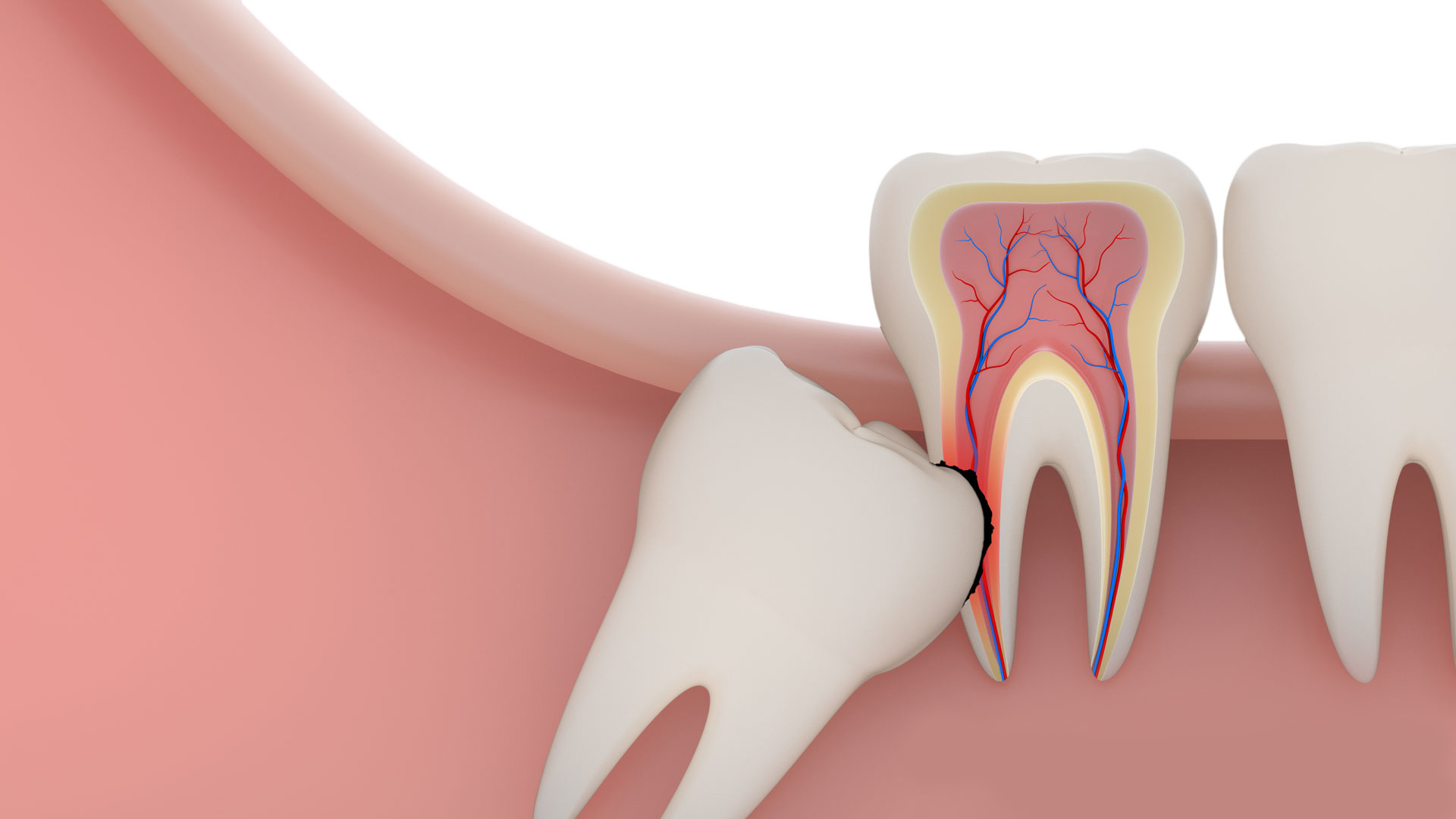wisdom tooth extraction
- Home
- Wisdom Tooth Extraction

A third molar, commonly called wisdom tooth, is one of the three molars per quadrant of the human dentition. It is the most posterior of the three. The age at which wisdom teeth come through is variable, but this generally occurs between late teens and early twenties. A dental extraction (also referred to as tooth extraction, exodontia, exodontias, or informally, tooth pulling) is the removal of teeth from the dental alveolus in the alveolar bone. Extractions are performed for a wide variety of reasons, but most commonly to remove teeth which have become unrestorable through tooth decay, periodontal disease, or dental trauma, especially when they are associated with toothache.
At what age should I have my wisdom teeth extracted?
People of all ages can have their wisdom teeth removed. However, many dentists recommend having them extracted in your late teens or early 20s. During this stage of development, your wisdom teeth are still forming. For this reason, they may be easier to remove with less risk of complications.
Removing the wisdom tooth
If the tooth hasn’t come through the gum, a small cut (incision) will be made in the gum to access it. A small piece of the bone covering the tooth may also need to be removed. The tooth may be cut into smaller parts to make it easier to remove through the opening. There’s less need to make an incision if the tooth has broken through the gum. You’ll feel some pressure just before the tooth is removed, as your dentist or oral surgeon needs to widen the tooth socket by rocking the tooth back and forth before taking it out. You shouldn’t feel any pain as your wisdom teeth are removed because the area will be numb. However, if you do feel pain during the procedure, tell your dentist or oral surgeon so they can give you more anaesthetic. How long it takes to remove the tooth will vary. Simple procedures can take a few minutes, but it can take longer than 20 minutes if it’s more complicated.
Problems with impacted wisdom teeth
You’ll likely need your impacted wisdom tooth pulled if it results in problems such as:
- Pain
- Trapping food and debris behind the wisdom tooth
- Infection or gum disease (periodontal disease)
- Tooth decay in a partially erupted wisdom tooth
- Damage to a nearby tooth or surrounding bone
- Development of a fluid-filled sac (cyst) around the wisdom tooth
- Complications with orthodontic treatments to straighten other teeth
Pain After Wisdom Tooth Procedure –
Most people recover from wisdom tooth extraction within 3-4 days and usually by this point, they can go about their normal daily lives. However, for more complex cases or multiple teeth extractions, full recovery may take 7-10 days.
At what age should I have my wisdom teeth extracted?
People of all ages can have their wisdom teeth removed. However, many dentists recommend having them extracted in your late teens or early 20s. During this stage of development, your wisdom teeth are still forming. For this reason, they may be easier to remove with less risk of complications.
Recovery tips
The following tips may help a person feel better after wisdom tooth removal surgery:
If a person was under sedation or took general anesthesia, they may feel nausea or experience vomiting. Taking medication with food may help alleviate this.
A person should consume food as they can tolerate it.
Prescribed pain medications may also cause nausea in some cases. Discuss medication side effects and changes with a doctor.
Contact the dental office if nausea or vomiting persists.


